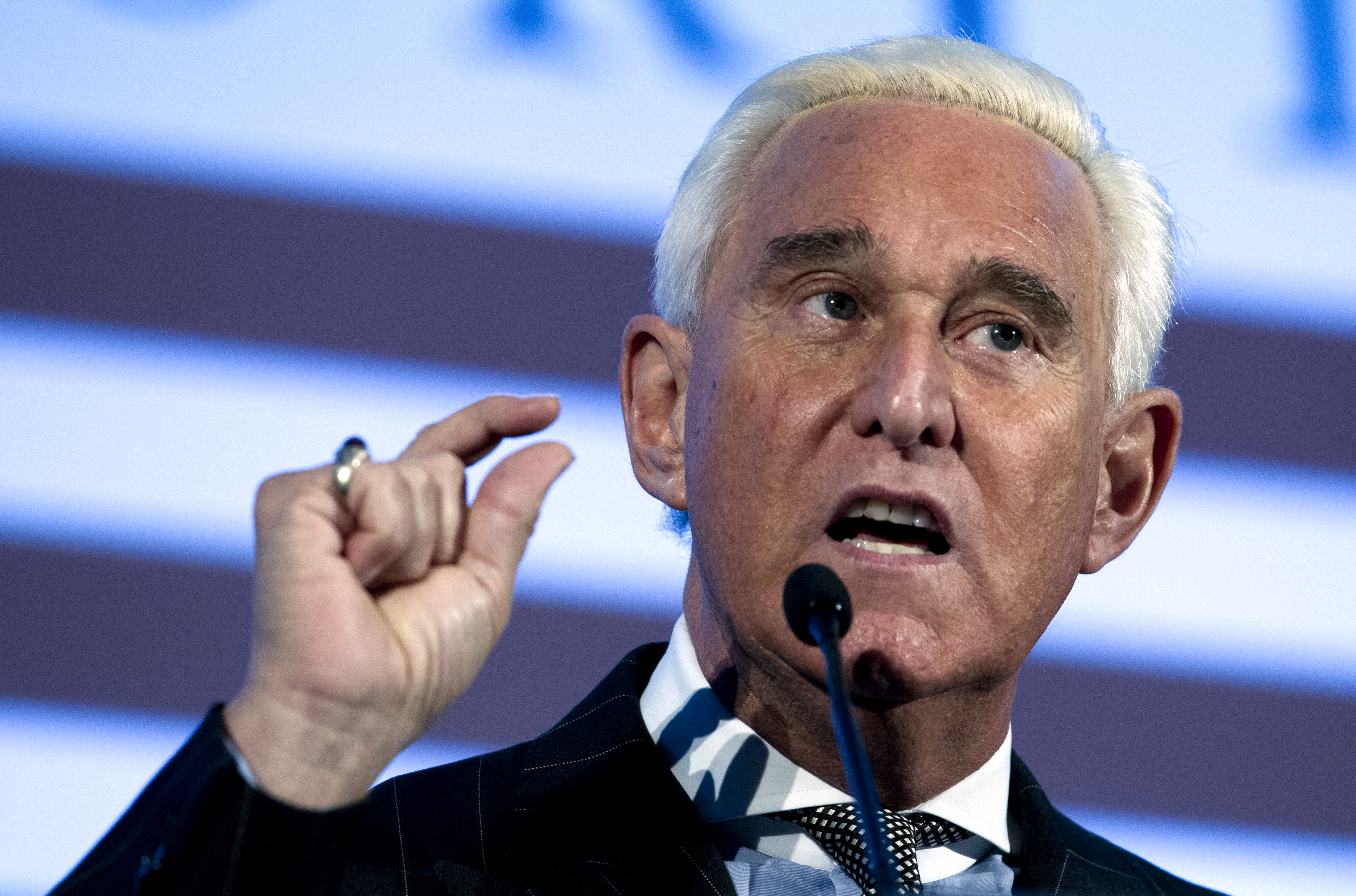Roger Stone, a confidant of President Donald Trump, was arrested on Friday morning in the special counsel's Russia investigation and was charged with lying to Congress and obstructing the probe.
The seven-count indictment against Stone, a self-proclaimed 'dirty trickster', is the first criminal case in months from special counsel Robert Mueller and provides the most detail to date about how Trump campaign associates were aware in the summer of 2016 that emails had been stolen from the Hillary Clinton campaign and wanted them released.
It alleges that unnamed senior Trump campaign officials contacted Stone to ask when the stolen emails might be disclosed.
The indictment does not charge Stone with conspiring with WikiLeaks, the anti-secrecy website that published the emails, or with the Russian officers Mueller says hacked them.
Instead, it accuses him of witness tampering, obstruction and false statements about his interactions related to WikiLeaks' release. Some of those false statements were made to the House intelligence committee, according to the indictment.
The indictment lays out in detail Stone's conversations about stolen Democratic emails posted by WikiLeaks in the weeks before Trump, a Republican, beat Clinton.
Mueller's office has said those emails, belonging to Clinton campaign chairman John Podesta, were hacked by Russian intelligence officers.
It says the Trump campaign directed a senior campaign official to contact Stone after the July 22, 2016, WikiLeaks release of hacked emails from the Democratic National Committee and other groups.
That official, who is not named in court papers, asked Stone about additional releases and 'what other damaging information' WikiLeaks had 'regarding the Clinton campaign,' the indictment says.
Stone is scheduled to appear in court in Florida later Friday. The indictment had been expected. Stone has said for months he was prepared to be charged, though he has denied any wrongdoing. A grand jury for months had heard from witnesses connected to Stone. And the intelligence committee last year voted to release a transcript of Stone's testimony to Mueller as a precursor to an indictment.
Stone has publicly denigrated the Mueller investigation and echoed the president's descriptions of it as a witch hunt. But he has long attracted investigators' attention, especially in light of a 2016 tweet that appeared to presage knowledge that emails stolen from Podesta would soon be released.
Stone has said he had no inside information about the contents of the emails in WikiLeaks' possession or the timing of when they'd be released.
He has said he learned from Randy Credico, a New York radio host, that WikiLeaks had the emails and planned to disclose them. Stone has released emails that he says support that assertion.
Prosecutors had offered a plea agreement to Stone friend Jerome Corsi that would have required the conspiracy theorist and conservative author to admit that he intentionally lied to investigators about a discussion with Stone about WikiLeaks. But he rejected the offer.
In a tweet on Friday, Podesta wrote that it was now 'Roger's time in the barrel'. That was a play on Stone's own words. Stone had tweeted cryptically before the Podesta emails were disclosed that it would soon be Podesta's 'time in the barrel'.










